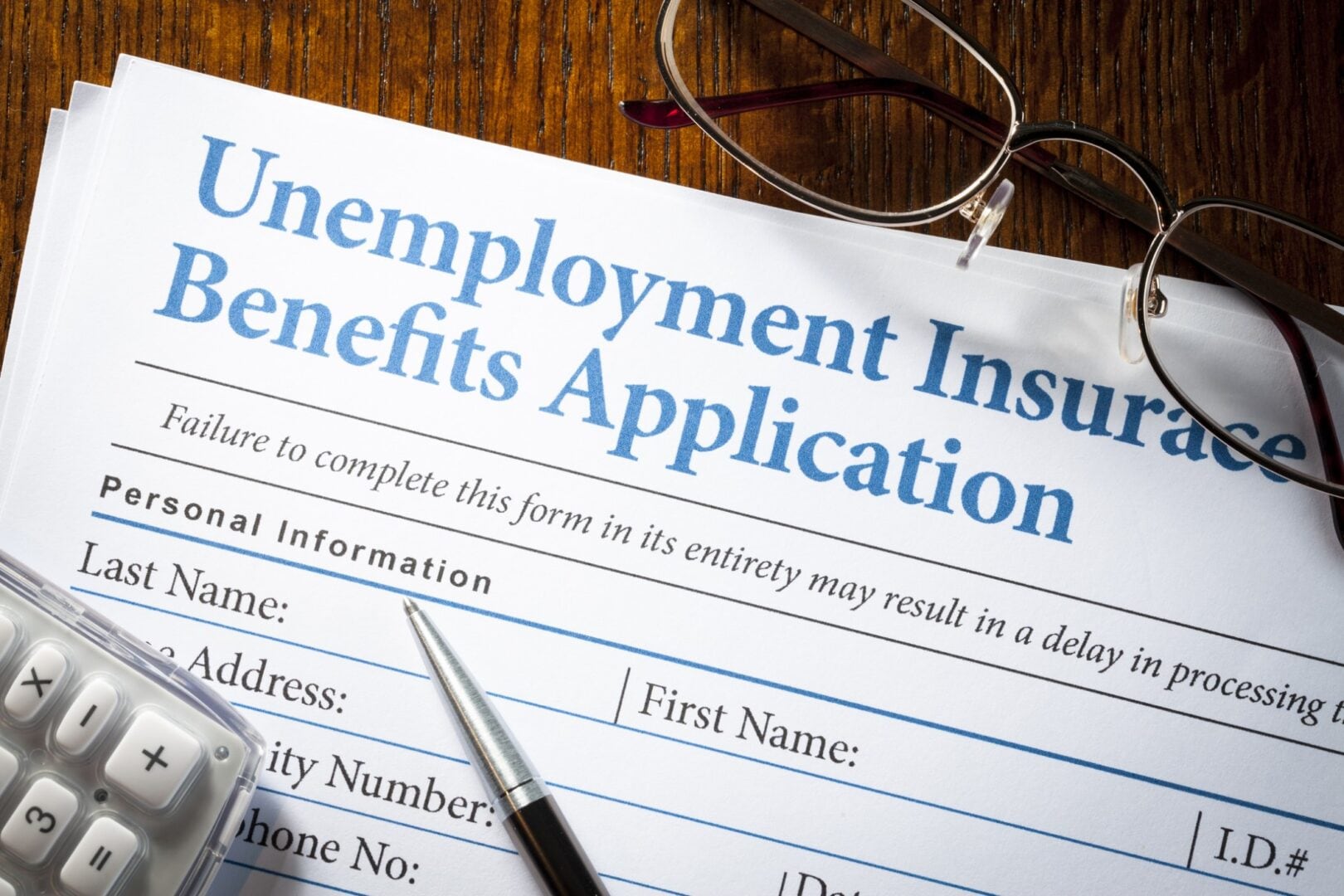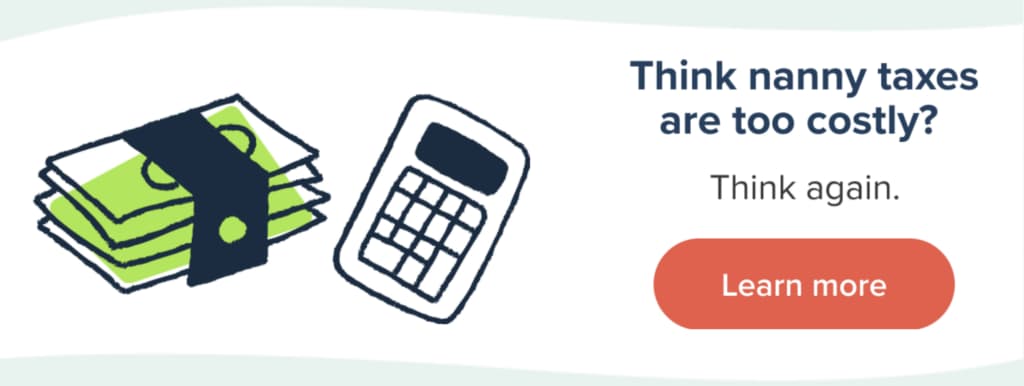One of the taxes families must pay when they hire a nanny, senior caregiver or other household employee is unemployment insurance taxes. These taxes contribute to state and federal unemployment funds, which are used to help laid-off workers make ends meet until they can find another job. In this article, we’ll go through several details about unemployment insurance, including:
- What exactly unemployment insurance is
- How much unemployment taxes cost
- If employees paid under the table can collect benefits
- What happens if your employee receives benefits
What is unemployment insurance?
Unemployment insurance is a government program designed to provide financial assistance to employees who have been “let go” from their job due to no fault of their own. It is funded through payroll taxes imposed on employers if their employees earn $1,000 or more in a calendar quarter.
Note: The threshold is lower in California ($750), Washington, D.C. and New York ($500).
Benefits are not paid to employees who quit their job or are terminated for good cause, including stealing, being under the influence on the job or continuously violating a term of their employment agreement. Qualification for benefits is determined on a case-by-case basis after an application has been submitted to the state labor/employment department for formal review.
How much are unemployment insurance taxes?
The amount of unemployment insurance taxes you are required to pay depends on several factors. Your state’s Department of Labor will send you a tax rate notice each year that you’ll apply to a portion of your caregiver’s wages to calculate how much in taxes you’ll have to pay.
Your tax rate, which generally starts around 2.5% as a new household employer, can increase or decrease based on your history of paying taxes on time and whether you’ve had previous employees who were awarded benefits. A good estimate of what you’ll pay is around $400 – $500 per year and you’ll probably pay those taxes on a quarterly basis until you fulfil the tax requirement set by your state. Use our budgeting calculator to get a more precise estimate.
If I pay my employee under the table, are they eligible for unemployment benefits?
No. When you pay your employee illegally, you are not paying the taxes that fund unemployment benefits. As a result, your employee would not initially be eligible for benefits if they file a claim. In fact, the state and the IRS will probably discover you’ve been paying under the table when your former employee tries to apply for unemployment benefits.
When this occurs, you’ll need to go back and pay all the taxes you owe to the IRS and the state, as well as penalties and interest, and file the federal and state tax forms you failed to send in on time. Once the process of catching up on taxes is complete, your previous employee may qualify for unemployment benefits.
Will I have to pay extra if my previous employee qualifies for unemployment benefits?
No. Employers do not pay unemployment benefits directly to former employees. The unemployment insurance taxes you pay (generally on a quarterly basis) flow into a general fund and benefits are distributed from the fund to employees that qualify. The only effect you will possibly see is a slight tax rate increase for the next year. Each employer is re-evaluated every year and rate adjustments up or down reflect the employer’s track record for laying off workers.
I received a notice that my previous employee has applied for unemployment benefits, but they quit. Do they qualify for benefits and what should I do?
If your employee quit or was let go with good cause, they should not qualify for unemployment benefits. The state notifies every employer when an unemployment benefits application has been filed by a previous employee. You are being asked to verify the facts of the termination or to dispute them if you feel that they were not presented accurately. A state case manager will review all documentation provided and determine eligibility for unemployment benefits. You will be informed in writing of the decision.
Next Steps:

